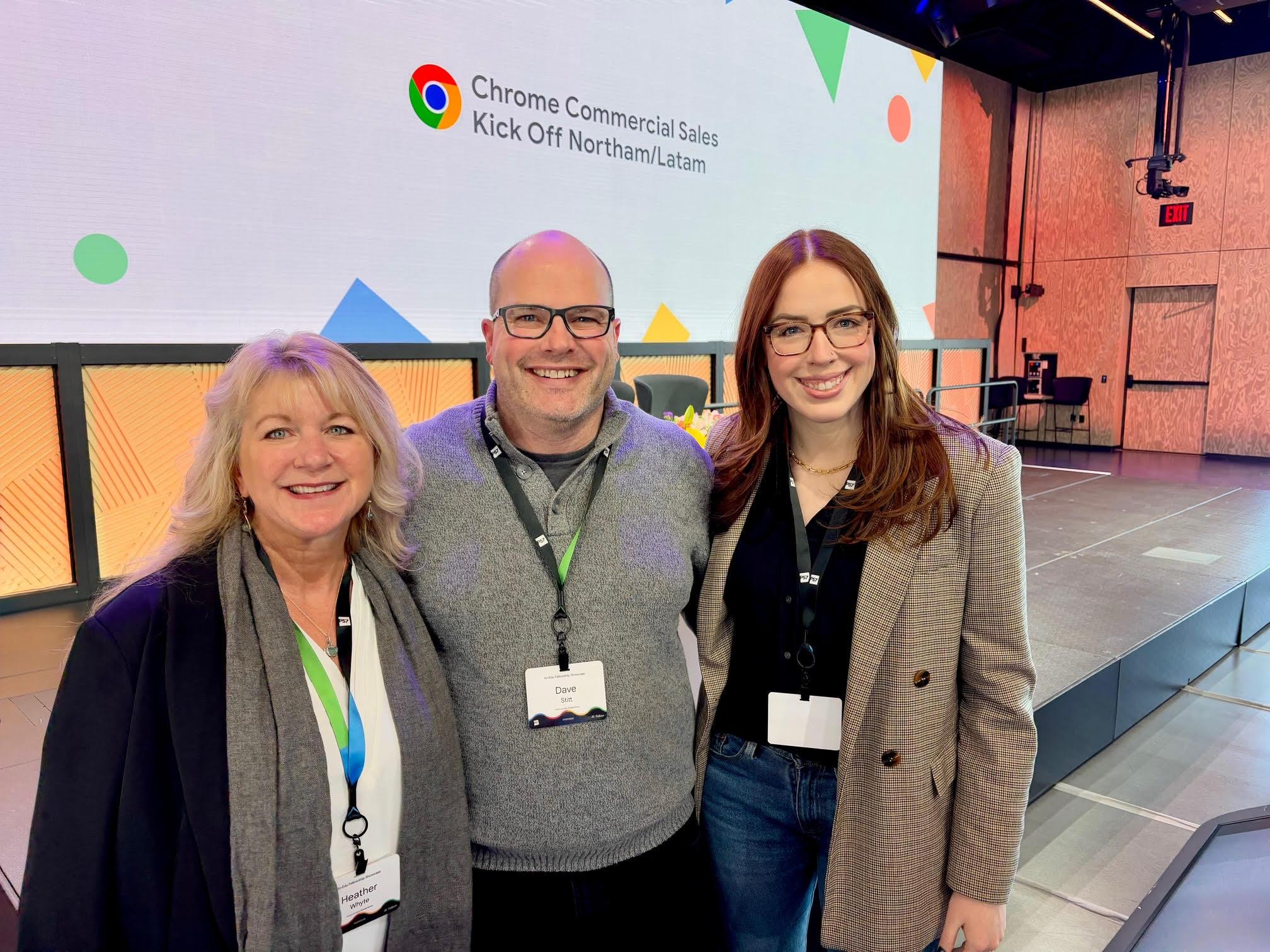Maximizing Teacher Efficiency: Heather Whyte's “Gemini's Genius” Project

Harbor Ridge Middle School social studies and technology teacher Heather Whyte approached the Google AI + Education Fellowship with a clear mission; help teachers reclaim time for what matters most, teaching. Her project, titled “Gemini’s Genius: Guiding Teachers to Greater Gains,” demonstrates how AI can transform administrative tasks into manageable five-minute solutions.
Five-Minutes to Solve a Problem
Whyte developed a program where teachers would meet with her for just five minutes on Wednesday mornings to learn time-saving AI techniques. These brief, but impactful sessions covered various tasks that typically eat away at educators’ time, such as;
- Writing evaluation goals aligned with the Danielson Framework.
- Crafting parent communications.
- Creating and differentiating instruction.
- Evaluating student work.
- Developing grading rubrics.
The results were significant. Pre- and post-project surveys revealed substantial time savings across all administrative categories, allowing teachers to focus more energy on direct student interaction and instruction.
Building a Lasting Resource
Understanding that one-time training sessions aren’t enough, Whyte created a comprehensive website housing all the strategies and resources shared during the fellowship.
“This is a resource for my colleagues now,” she said. “So they can go in and click on anything that they’re working on.”
This living document continues to grow as she adds new strategies and tools. Another key component of Whyte’s project was teaching educators how to write effective AI prompts.
“If you don’t write your prompt correctly, you’re not going to get the information that you’re shooting for,” Whyte said.
Her methodology helps teachers define their role and objectives, specify exactly what they want the AI to do, structure requests for better results, and avoid common pitfalls that lead to failed or unhelpful responses. This focus on prompt engineering ensures teachers get useful results on their first try, rather than spending valuable time refining and repeating requests.
Transforming Their Teaching Practices
For Whyte, the journey with AI has changed her own approach to teaching in the classroom.
“I just presented something in my class the other day, and I told the students, ‘let’s use AI to brainstorm man-made places in the coastal region of Washington State,’” she said. “And they’re like, ‘we can use AI?’”
The excitement from her students cemented Whyte’s belief in AI’s potential as a learning tool.
“Some teachers are afraid of it because they’re like, ‘No, [students] will cheat,’ but it’s such a powerful tool, and it’s our future. To embrace it is the way we need to go.”
Embracing this future is why Whyte prioritizes teaching responsible AI use.
“We need to learn to use it with integrity. One piece of my project was digital citizenship and how to approach AI with integrity, and not as a crutch, but a tool.”
She acknowledges the reality of student behavior while maintaining optimism about their motivations. In her experience, students want to learn. If teachers can reach students in ways that excite them, they can help them learn how to use AI ethically.
Whyte is also constantly learning. Recently, she realized how Google’s Gemini can help her organize and decipher data.
“I started asking Gemini to help me with student data and it said, ‘Would you like me to export that to Google Sheets for you?’ And I said, ‘yes please!’ And it did! What could have been two hours of work, especially if you don’t have a math brain, was done in a few minutes.”
These revelations continue to shape Whyte’s teaching practice and her ability to support fellow educators. The impact of tools such as Gemini will force educators to keep reimagining how we teach, and how students learn. She sees AI creating opportunities for deeper engagement and more meaningful educational experiences.
Whyte’s work continues to serve her fellow teachers at PSD, and will be featured in Google’s online comprehensive guidebook on AI in March 2025.